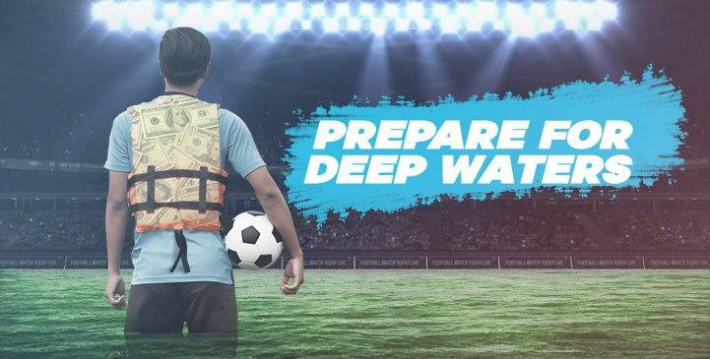Prepare for deep waters.
The summer transfer season is back in full swing. Many football players dream of a job abroad. However, these dreams often end in small dramas, when a player has no financial reserves.
Why would a player need financial reserves?
A player who is going to play football abroad must have financial means to avoid being in a dire situation if a club does not meet its payment obligations.
He must ensure that he:
- knows after the expiry of which period he can terminate his employment contract if the club does not pay his salary;
- has enough money to pay rent and gas and light for an apartment during this period;
- has enough money to pay for your food during this period, and
- has money to pay for a ticket/transport to his home country.
Why is this so important?
If a club stops paying salary, a player must be able to keep his head above water independently until he can safely terminate the employment contract and claim damages. If a player terminates in good faith, he is in principle entitled to his arrears of salary and compensation for the value of the residual value of his contract.
If a player is unable to bridge the default period until he can cancel in good faith:
- a player will be more likely to have to sign an unfavorable termination agreement for him;
- it may happen that the player cancels unilaterally too early and then becomes liable to pay compensation to the club.
It is utter nonsense to think that by definition clubs take good care of their foreign players. As a player, you have to ensure that you remain independent and cannot be squeezed like a lemon.
In particular, players who transfer (mostly) their paychecks to their home countries should realize that they are taking a huge risk if they do not have enough cash on hand to responsibly terminate their employment contract if a club fails to pay.
| Does Player have money? | NO | YES |
|---|---|---|
| Rent and utilities: | Stress | No Stress |
| Food | Stress | No Stress |
| Transport to homeland | Stress. No money no transport | No Stress |
| Mutual termination | Bad negotiation position due to stress. The player is desperate to get out of his dire situation | Good negotiation position. The player has no stress. |
| Unilateral termination | Difficult position because of stress factors. It takes time before a player can terminate. His dire position however lures him to terminate too early. | Easy, the player has no stress and can wait patiently for the day that he can safely terminate the agreement. |
| Compensation after a unilateral termination | If a player terminates too early because of stress the player has to pay compensation | The player waits patiently, terminates when allowed, and can ask for compensation. |
The cruel outcome is often that a club that squeezes a player like a lemon is often rewarded by favorable termination agreements or claims on the player because he terminated unilaterally too early.
Save money, save yourself, the club won’t do it!










